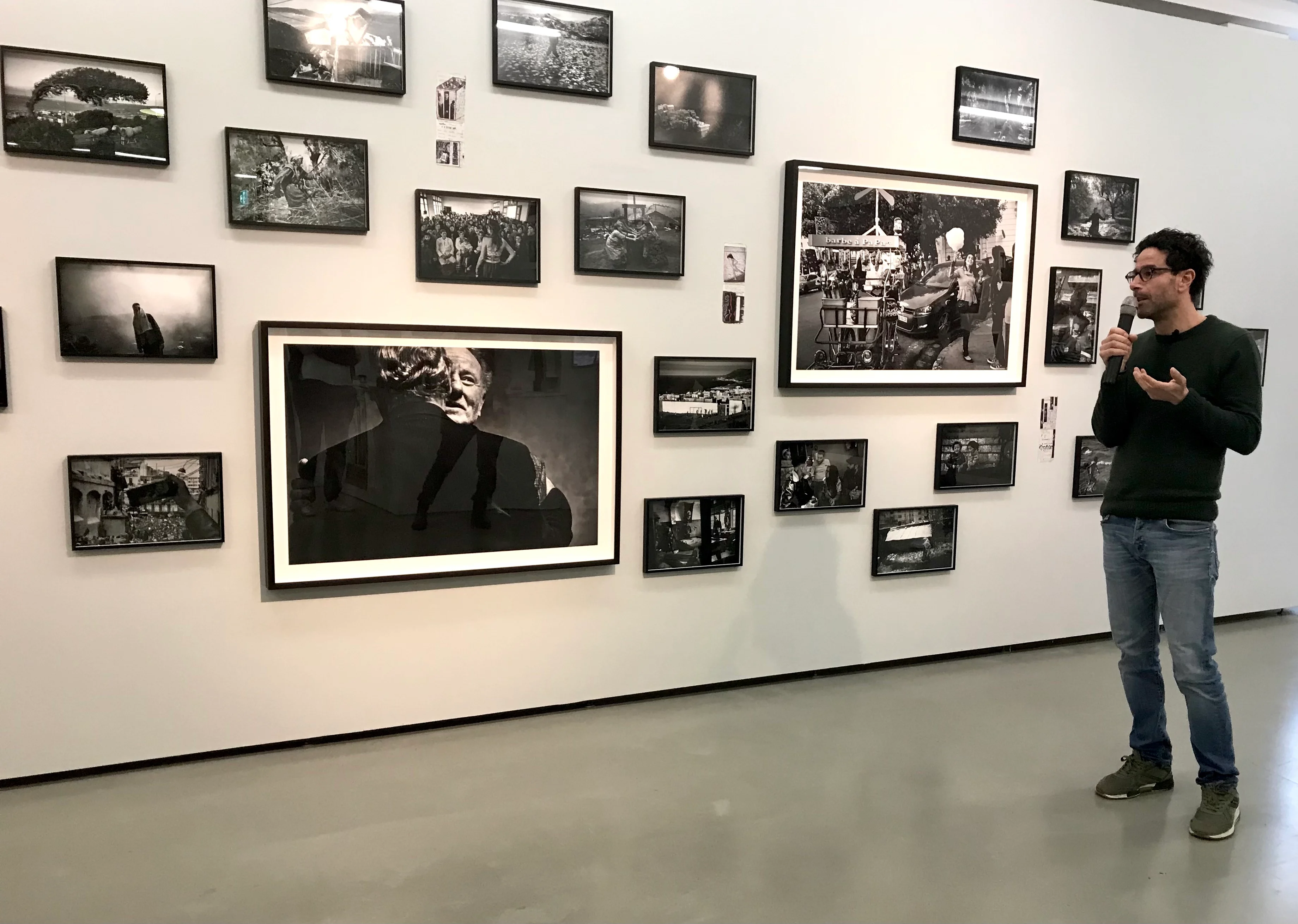The life of the Imazighen in North Africa - Bouda shows with impressive pictures the everyday life of the indigenous ethnics
Ferhat Bouda's impressive images give us an insight into the everyday life of the indigenous ethnic groups in North Africa. The Algerian photographer has been documenting the everyday life of the Imazighen for over a decade. The nomadic communities are at the center of Bouda's work. He shows living in tents, caves or sewers, earning a living in fields or garbage dumps, and being on the move on camels and motorcycles. In addition, often shadowy human silhouettes that seem as one with the environment in which they live. And yet equally threatened, whether by climate change, political conflict or other reasons.
In the exhibition FERHAT BOUDA. PHOTOGRAPHS AND DIARIES, in addition to images of the life and survival of fragile cultures in North Africa, there are also photographs from Frankfurt am Main. Bouda shows the diversity of the Main metropolis Frankfurt at different political and cultural events.
The exhibition can be viewed at Fotografie Forum Frankfurt from 18 March - 22 May 2022. You can find all information at Fotografie Forum Frankfurt.
Short profile
Ferhat Bouda, born 1976 to a Berber family in Algeria, studied photography in France and Germany and is member of the photo agency Agence VU. His photo essays are regularly published in international newspapers and magazines, including Le Monde, Geo, The New York Times, and Spiegel. His work has been exhibited in numerous photographic festivals.
2017 he received a grant from the Hessische Kulturstiftung. In 2020 he was honoured with the Ellen Auerbach Fellowship for Photography from the JUNGE AKADEMIE/Akademie der Künste, Berlin. The FFF exhibition FERHAT BOUDA. PHOTOGRAPHS AND DIARIES has been supported by these fellowships.
Ferhat Bouda in a video interview about his "Photographs & Diaries" exhibition

3 MORE QUESTIONS TO FERHAT BOUDA
How did you actually get into photography?
I discovered photography in Paris in 2001. In Paris, I learned photography at a school once a week, also in the darkroom. And from 2010, I stopped all other jobs and since then I call myself a photographer. For me, photography is a commitment. Frankfurt has helped me a lot: When I came here, I discovered the Fotografie Forum Frankfurt (FFF) and took part in many workshops, for example with Anders Petersen, Stanley Green, and Antoine d'Agata. They helped me a lot. I already wanted to be a photographer in the period 2006-2010, but I lacked the courage. When I met these photographers in the workshops, I finally found the courage.
Since I like to be in the darkroom and develop my images myself, I still shoot a lot in black and white.
How did your home country Algeria influence your work?
Since at least 2010 until today, I have been working in the Berber or Amazigh theme. The Amazigh are the indigenous people of North Africa, they live in Morocco from the North Atlantic to Siwa. There are the last Berbers in North Africa or Egypt. They are a people with their own language and culture with different religions. I am a Berber myself and learned the language in my village from my mother. At school I had to learn French and Arabic. This was normal for me, but with time I realised that it was wrong, because it is also important for a child to learn its mother tongue. So I got the idea that I had to do something. The reason why I take photographs is actually a long story and very personal. My grandmother did everything for freedom and against colonialism. In general, women have always played a big role in our culture because they are a backbone of this society and culture. One day, my grandmother was no longer allowed to work, and since then she has been at home in front of the television, watching only films in French or Arabic, which she does not understand. She did everything for freedom and today she cannot watch a film in her mother tongue or listen to it on the radio. From this, the idea developed to do something in Algeria and so I decided to go to France to study film and make a film for my grandmother in her language, but unfortunately nothing came of it. However, I did have my first exhibition in Algeria in 2011. There I exhibited my work from Mongolia and afterwards I thought, photography is also a language. My grandmother saw this and understood it. I was very happy about that and it was also a kind of film for me, a language that is understood everywhere.

Ferhat Bouda talking in a microphone in front of a gallery wall.
What advice would you like to give to amateur photographers?
My advice to amateurs, or if someone is starting out in photography, is to start with your family. Or with a subject of your heart. Not just a subject because something happens there and I make a cover or a publication out of it. For me it's very important not to think of a publication. We have to start with trust, also trust in ourselves. And also the others have to have confidence in us. And it is also important that we need a lot of time. A lot of time for the subjects and time to photograph. Sometimes we go on a trip and we haven't done anything and we need a second trip, a third trip, a fourth trip. When I photograph myself, I don't want to put limits on when the project is finished.




